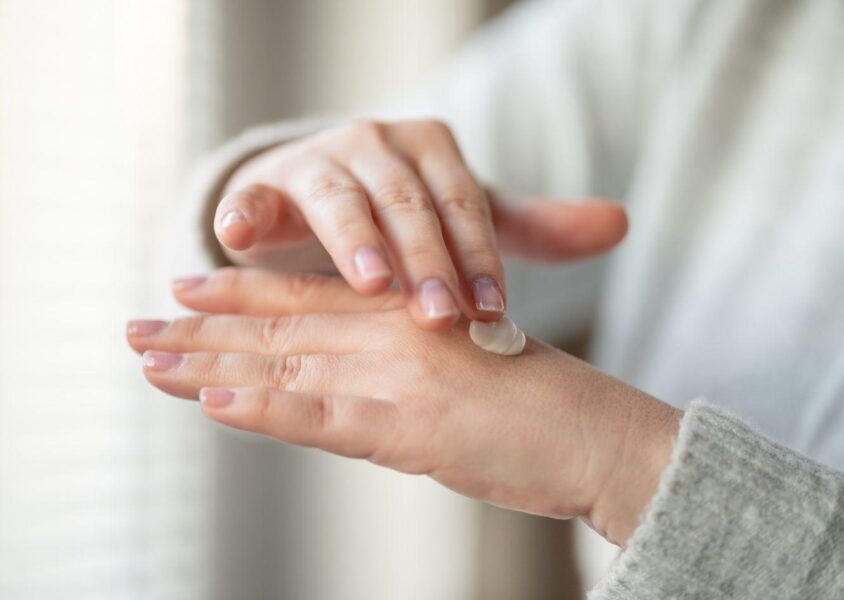Dry And Itchy Skin During Winters

Most of us experience dry and itchy skin during Winter. Winters are often the time of the year when the air is the driest. It is because the sub-zero temperatures freeze the moisture in the air. In addition, strong winds can help to dry out the air by blowing away moisture. During the winter months, there may be more wind, which can contribute to the dryness of the air.
Chapped skin, also known as dry skin or winter itch, is common when the skin becomes dry, rough, and cracked due to exposure to cold, dry air. Chapped skin is most common in winter when the air is drier and the humidity is low.
Several factors can contribute to chapped skin.
For example, cold, dry air can strip the skin of its natural oils, leading to dryness and cracking. Hot showers, more common during winters, can strip the skin of its natural oils and disrupt its natural barrier function, leading to dryness and irritation. In addition, some soaps and detergents can strip the skin of its natural oils and disrupt the skin’s natural pH balance, leading to dryness and irritation.
Dry and itchy skin can cause the skin to become flaky and peel, including around the edges of the nails. Peeling skin around the edges of the nails can be caused by a variety of other factors as well, including irritation or an underlying medical condition.
Contact dermatitis is a skin irritation caused by contact with irritants or allergens. It can cause the skin to become red, itchy, and peeling, including around the edges of the nails. A fungal infection, such as Athlete’s foot, can cause the skin to peel around the edges of the nails. Psoriasis is a chronic skin condition that causes the skin to become red, scaly, and inflamed. Again, it can cause the skin to peel around the edges of the nails.
Most medical conditions and discomfort related to itchy skin have dehydration as the common reason.
Staying hydrated by drinking plenty of water can help to prevent dryness from the inside out. A humidifier can help to add moisture to the air, which can help to keep the skin hydrated. A moisturizer on the skin after bathing can help lock in moisture and prevent dryness.
If the itchiness is severe or does not improve with self-care measures, it is important to seek medical treatment. A healthcare provider can help to diagnose and treat any underlying medical conditions that may be causing the itchiness.